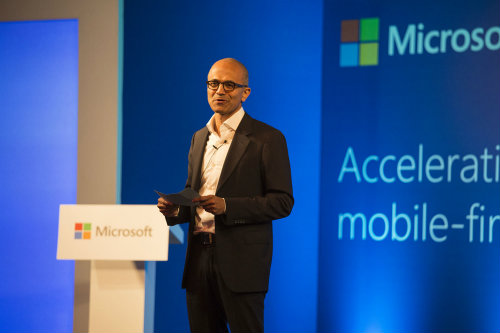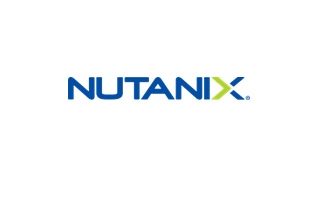Microsoft announces commercial cloud services from Local Datacenters by End 2015
New Delhi, India, September 30, 2014: In his first visit to India as Microsoft CEO, Satya Nadella today announced that Microsoft will offer commercial cloud services – Azure and Office 365, from local datacenters by the end of 2015. This is expected to accelerate public and hybrid cloud adoption significantly in India. Organizations in the country will benefit from data sovereignty, lower latency and geo redundancy with the availability of local infrastructure.
“Microsoft is deeply committed to helping people and organizations thrive in our mobile-first and cloud-first world – that’s why we are proud to offer our commercial cloud services through datacenters in India,” said Satya Nadella, CEO of Microsoft. “With more than 250 million Indians using Internet-connected devices today, there is incredible demand and opportunity for India with Microsoft’s cloud services.”
“By offering our cloud services through local datacenters, we can help make Digital India a reality,” said Bhaskar Pramanik, Chairman, Microsoft India. “This opens new possibilities in e-governance, financial inclusion, healthcare and education, and will help us positively impact the lives of a billion people.”
Microsoft’s cloud services in India have grown over 100 percent in revenue in the past year, and the commitment to offer locally hosted Microsoft Azure and Office 365 will further accelerate this. Microsoft’s locally available cloud services will open opportunities for banking, financial services and insurance (BFSI) companies, state-owned enterprises and government departments to adopt the public cloud. The services offered via the local datacenters will create new avenues for Microsoft India’s 10,000+ partner ecosystem, comprised of hosters, independent software vendors (ISVs), system integrators (SIs) and others.
Driving Business Growth
Several key customers such as Bajaj Finance, Fortis Hospitals and FCB/ULKA are already benefiting from their adoption of Microsoft’s cloud technologies.
“Microsoft is uniquely positioned to address the growing IT requirements of the finance industry for both productivity and platform solutions. We, at Bajaj Finance Ltd, have experienced the quality of Microsoft Cloud services first hand and are quite happy about them. The breadth of Microsoft Cloud solutions – from on premise private cloud to public and hybrid clouds – makes a comprehensive offering for financial services customers”, said Rakesh Bhatt, COO of Bajaj Finance Limited.
With the services delivered through Microsoft’s local datacenters, India’s rapidly growing small and medium businesses can benefit significantly from adopting public or hybrid cloud offerings. To enable these and other businesses to benefit from its cloud offerings, Microsoft has announced a new Cloud Accelerator Program to support customers at different stages of adoption. More details are available at www.microsoft.com/india/datacenter.
Accelerating Entrepreneurship and Innovation
Microsoft will continue to empower local start-ups by providing Azure credits worth $60,000 through the BizSpark+ initiative. With over 4,800 start-ups enrolled into the BizSpark program in India, Microsoft has already invested over $10 million in providing Indian entrepreneurs with access to Azure.
“ZingHR has tremendously benefited from its new found ability to harness the power of the Microsoft Azure cloud for its Indian SMB and Enterprise customers by offering scalability and guaranteed availability to even the most demanding requirements. We will now be able to help large number of existing and new BFSI customers who have always wanted ZingHR on Indian soil due to regulatory reasons”, said Prasad Rajappan, CEO of Zing HR.
New Opportunities for Partners
Over the last few years, Microsoft India has continued to enable its partners with cloud capabilities in order to better address the market. Several Microsoft partners, including System Integrators (SIs) like HCL Infosystems, TCS and Wipro, and ISVs such as MartJack, Newgen Software Technologies Limited and Nucleus Software, have built cloud offerings with Microsoft Azure and Office 365. Over the last year, the number of Microsoft’s cloud solution partners has increased by more than 200% and the number of ISV applications has grown by 100%.
“Datacenter market in India is seeing huge growth powered by increased digitization and use of mobility for both business and leisure. We have partnered with Microsoft to help businesses adopt cloud as a part of their IT strategy and realize benefits of cloud. It has been a very successful initiative. At the same time, there are sections of industry concerned about data sovereignty and cost of connectivity. Microsoft’s plans to launch commercial cloud services from India would address those customers, specifically in the BFSI sector and government entities. We are looking forward to extending our partnership with Microsoft in this area as well,” said TK Kurien, CEO of Wipro Limited.
“With launch of commercial cloud services from India, Microsoft has reiterated its commitment and focus on this market. Indian enterprises and government are seeing increased IT adoption and cloud is helping these organizations rationalize investments, improve agility and reduce time to market. TCS and Microsoft are uniquely positioned to jointly address the cloud adoption requirements of Indian businesses, educational institutions and government,” said N Chandrasekaran, CEO & MD, Tata Consultancy Services.
From our understanding of this ecosystem, we can say that the establishment of an India based datacenter will help address the customers’ expectations regarding data residency, security and regulatory compliance. HCL has had a long standing relationship with Microsoft spanning decades and we look forward to a continued fruitful relationship in the future”, said Harsh Chitale, Managing Director and Chief Executive Officer, HCL Infosystems Limited.



